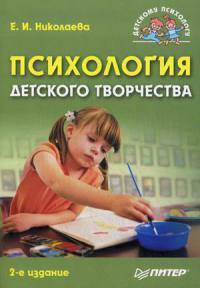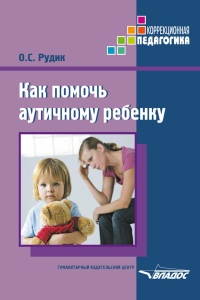& Christopher Germer, The Mindful Self-Compassion Workbook (New York: Guilford Press, 2018).
113
Porges, The Pocket Guide, 45.
114
Jeree H. Paul & Maria St. John, How You Are Is as Important as What You Do (Washington, DC: ZERO TO THREE: National Center for Infants, Toddlers, and Families, 1998).
115
Следующие шесть шагов сформулированы на основе социально-эмоциональных процессов Гринспена и Уидер (Greenspan & Wieder, 1998, 2006).
116
Stuart Shanker, Self-Reg: How to Help Your Child (and You) Break the Stress Cycle and Successfully Engage with Life (New York: Penguin Books, 2016).
117
Erika M. Waller & Amanda J. Rose, “Brief Report: Adolescents’ Co-Rumination with Mothers, Co-Rumination with Friends, and Internalizing Symptoms”, Journal of Adolescence 36, no. 2 (2013): 429–433.
118
Porges, The Pocket Guide, 51.
119
В английском языке четыре этапа поддержки образуют акроним IDEA: Inquire – Determine – Examine – Address. (Прим. перев.)
120
“Brain Architecture», Center on the Developing Child, Harvard University, https://developingchild.harvard.edu/science/key-concepts/brain-architecture/. Также см. Bruce D. Perry, «Maltreatment and the Developing Child: How Early Childhood Experience Shapes Child and Culture» (вступительная лекция, The Margaret McCain Lecture Series, Centre for Children & Families in the Justice System, London, ON, 23/09/2004), https://childtrauma.org/wp-content/uploads/2013/11/McCainLecture_Perry.pdf.
121
Els van der Helm & Matthew P. Walker, «Overnight Therapy? The Role of Sleep in Emotional Brain Processing», Psychological Bulletin 135, no. 5 (2009): 731–748. Также см. Christina O. Carlisi et al., «Sleep-Amount Differentially Affects Fear-Processing Neural Circuitry in Pediatric Anxiety: A Preliminary fMRI Investigation», Cognitive, Affective, & Behavioral Neuroscience 17, no. 6 (2017): 1098–1113.
122
Peir H. Koulivand, Maryam Khaleghi Ghadiri, & Ali Gorji, «Lavender and the Nervous System», Evidence-Based Complementary and Alternative Medicine, no. 2013 (2013): 681304.
123
Greenspan, Growth of the Mind, 21.
124
Stephen W. Porges, Associate Manual Safe and Sound Protocol (Aurora, CO: Integrated Listening Systems, 2018).
125
Stephen W. Porges et al., «Reducing Auditory Hypersensitivities in Autistic Spectrum Disorder: Preliminary Findings Evaluating the Listening Project Protocol», Frontiers in Pediatrics 2, no. 80 (2014): 1–10. Также см. Stephen W. Porges et al., «Respiratory Sinus Arrhythmia and Auditory Processing in Autism: Modifiable Deficits of an Integrated Social Engagement System?», International Journal of Psychophysiology 88, no. 3 (2013): 261–270.
126
Lillas & Turnbull, Infant/Child Mental Health, 178.
127
«Breathe», Sesame Street in Communities, https://sesamestreetincommunities.org/activities/breathe-bundle/.
128
Susan Kaiser Greenland, The Mindful Child (New York: Simon & Schuster, 2010).
129
Greenland, Mindful Child, 68.
130
Greenland, 69.
131
«The School Yoga Project», Little Flower Yoga, http://littlefloweryoga.com/programs/the-school-yoga-project.
132
Bessel van der Kolk, The Body Keeps the Score: Brain, Mind, and Body in the Healing of Trauma (New York: Penguin Books, 2014), 159.
133
Porges, The Pocket Guide, 22.
134
Bridget E. Hatfield & Amanda P. Williford, “Cortisol Patterns for Young Children Displaying Disruptive Behavior: Links to a Teacher-Child, Relationship-Focused Intervention”, Prevention Science 18, no. 1 (2017): 40–49.
135
Serena Wieder, “PLAY: The Window into the Child’s Emotional Experiences”, Profectum Foundation, https://profectum.org/wp-content/uploads/2015/03/PLAY-HANDOUT.pdf.
136
Porges, The Pocket Guide, 22.
137
Greenspan and Wieder, Child with Special Needs, 256–257.
138
Wieder, “PLAY”.
139
Porges, The Pocket Guide, 22.
140
Greenspan and Wieder, Child with Special Needs, 206–220.
141
Greenspan and Wieder, 256–257.
142
Greenspan and Wieder, 206–220.
143
Greenspan and Wieder. See also Wieder, “PLAY”.
144
“What Is DIR and Why Is It Important?”, Profectum Foundation, https://profectum.org/about/dir/.
145
“Child-Parent Psychotherapy (CPP)”, California Evidence-Based Clearinghouse for Child Welfare, http://www.cebc4cw.org/program/child-parent-psychotherapy/detailed.
146
“The Mindsight Approach to Well-Being: A Comprehensive Course in Interpersonal Neurobiology”, Mindsight Institute, https://www.mindsightinstitute.com/comprehensive-course-in-ipnb.
147
“The NRF Manual”, Neurorelational Framework Global Communities, http://nrf-gc.org/nrf-manual/.
148
Siegel & Bryson, The Whole Brain Child, 27 (перевод на рус. яз. см. Сигел, Д., Брайсон, Т. Воспитание с умом. – М.: Эксмо, 2014).
149
“About the CPS Model”, Lives in the Balance, https://www.livesinthebalance.org/about-cps.
150
“What is Dialectical Behavior Therapy (DBT)?”, Behavioral Tech: A Linehan Institute Training Company, https://behavioraltech.org/resources/faqs/dialectical-behavior-therapy-dbt/.
151
Brené Brown, Daring Greatly (New York: Random House, 2012).
152
Dana, Polyvagal Theory in Therapy, 101.
153
Porges, The Pocket Guide, 204.
154
Greenspan & Wieder, Child with Special Needs, 11.
155
Virginia Chaidez, Robin L. Hansen, & Irva Hertz-Picciotto, “Gastrointestinal Problems in Children with Autism, Developmental Delays or Typical Development”, Journal of Autism and Developmental Disorders 44, no. 5 (2014): 1117–1127; Preeti A. Devnani & Anaita U. Hegde, “Autism and Sleep Disorders”, Journal of Pediatric Neurosciences 10, no. 4 (2015): 304–307; Francisca J. A. van Steensel & Emma J. Heeman, “Anxiety Levels in Children with Autism Spectrum Disorder: A Meta-Analysis”, Journal of Child and Family Studies 26, no. 7 (2017): 1753–1767.
156
Shulamite A. Green et al., “Neurobiology of Sensory Overresponsivity in Youth with Autism Spectrum Disorders”, JAMA Psychiatry 72, no. 8 (2015): 778–786. Также см. Ayelet Ben-Sasson et al., “Extreme Sensory Modulation Behaviors in Toddlers with Autism Spectrum Disorders”, The American Journal of Occupational Therapy 61, no. 5 (2007): 584–592.
157
Diagnostic and Statistical Manual, 50. Также см. Green et al.,
























